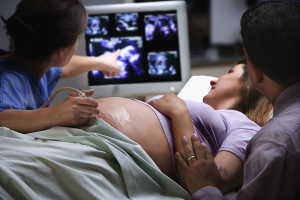The Economy and Defense Sustain Trump's Evangelical Support

Donald Trump was voted into office on the strength of support from Christians. The final 2016 vote tally showed that 57 percent of all self-identified Christians backed the brash real estate magnate while less than half as many non-Christians (26 percent) gave him their vote. In contrast, Hillary Clinton's main source of support was the non-Christian population. Overall, 62 percent of voters who are aligned with a non-Christian faith or who are among the religious skeptics (i.e., atheists, agnostics, and nones) voted for the Democratic Party nominee. She garnered just 37 percent of the votes cast by those who claimed to be Christian.
At the beginning of the primary season in 2016, Trump was generally dismissed by born-again voters. In January 2016, only 38 percent of them had a favorable impression of him. By April, although he was emerging as the likely Republican nominee, his favorability among born again voters had slumped to 31 percent. But a series of events rallied Christians behind him, as discovered by the research described in the book The Day Christians Changed America. Consequently, Trump's positive rating among the born-again public jumped to a respectable 53 percent by Election Day.
While the mainstream media continue to trash the president, his favorability numbers have remained relatively consistent among born again Christians over the past 15 months. At the start of his presidency, in February 2017, he had a 58 percent favorability score with born agains. In our most recent measurement, in mid-January of 2018, 54 percent of that segment still awarded him a favorable rating.
During the election cycle, Trump's appeal to born-again voters – a large subset of the Christian vote, representing about 30 percent of the total population – was certainly not his character. That was significant because born again voters typically look for a candidate who blends strong character with conservative political views. That makes Trump's ascendancy among born again all the more incredible since born-again voters deemed his character detrimental and they were not sure if they could trust him to stick to his freshly-minted conservative views.
In the end, it was his positions on several issues of the greatest importance to Christ followers that persuaded them that he was safer bet than his undeniably liberal opponent. Specifically, Trump's stands on heath care, immigration, the Supreme Court, abortion, the economy, national defense, and terrorism were highest on the born again priority list. On Election Day, born-again Christians bet that Trump would perform as promised in those areas.
Now, a year into his term, how do born again adults say he has done in those same areas of interest?
Our most recent study, evaluating perceptions of his performance after one year in office, produced a generally positive report from his born again supporters. A representative national survey of adults inquired as to how he has done in relation to those issues (and 23 others), seeking to know if they believe conditions related to those areas have gotten better, worse, or stayed the same under his leadership.
The survey revealed that Trump's born-again support has remained solid because they believe he has done a good job related to several critical issues. They consider Trump to have done well with the economy (52 percent said it is now better, 16 percent said it is worse – a net positive of 36 percentage points), national defense (29-point net positive), and terrorism (24-point net positive). There was a small net positive score associated with his work related to the Supreme Court and judicial system (a plus-six score). In other areas also of significant concern to born-again people, though, the jury is still out. Trump got non-committal evaluations related to abortion (plus-two net score), immigration (even), reducing government debt and spending (minus-one net score), and health care (minus-seven net score).
Despite what his detractors would have the public believe, the progress made by the president in his first year is significant. Reigniting a moribund national economy is a big deal. Decimating leading terrorist groups like ISIS and al Queda is a big deal. Placing a conservative jurist on the Supreme Court is a big deal. Rebuilding a tattered and despondent military is a big deal. Eliminating dozens of Obama Executive Orders is a big deal.
But his inability to get Congress on board with other pressing issues certainly has Trump's most loyal constituents – Christians – on edge. The fact that his favorability rating has declined, albeit slightly, in the past year within that segment ought to be a red flag to him. If he loses a mere five percent of the backing of born-again Christians, he is guaranteed to be a one-term president. Elections are a numbers game, and the numbers clearly show that Trump cannot afford the slightest erosion from his base of supporters.
Making that tightrope walk even more dangerous for Trump is the likelihood of losing support from the other, larger subset of the Christian voting bloc in the U.S. That segment – Notional Christians, people who consider themselves to be Christian but are not born again – barely broke for Trump in 2016 (49 percent, compared to Clinton's 47 percent). It was the first presidential election of the last eight in which Notionals sided with the GOP candidate over the Democratic option. Notional Christians are an important segment for Trump since they represent about 40 percent of the voting public.
A majority of Notionals – and a substantial portion of born again voters – will not support the incumbent in 2020 unless Trump completes more of his original agenda. With the mainstream media and liberal Democrats aggressively pounding away at Trump's image and performance, the level of opposition he faces at the ballot box is likely to be intense in 2020. That, in turn, means he will need to increase his levels of support from Christians – among both the born again and Notional varieties – if he is to have a reasonable chance of getting re-elected.
George Barna is a bestselling author and the Executive Director of the American Culture & Faith Institute. He founded the Barna Group and sold it in 2009. He can be reached at georgebarna@gmail.com.



























